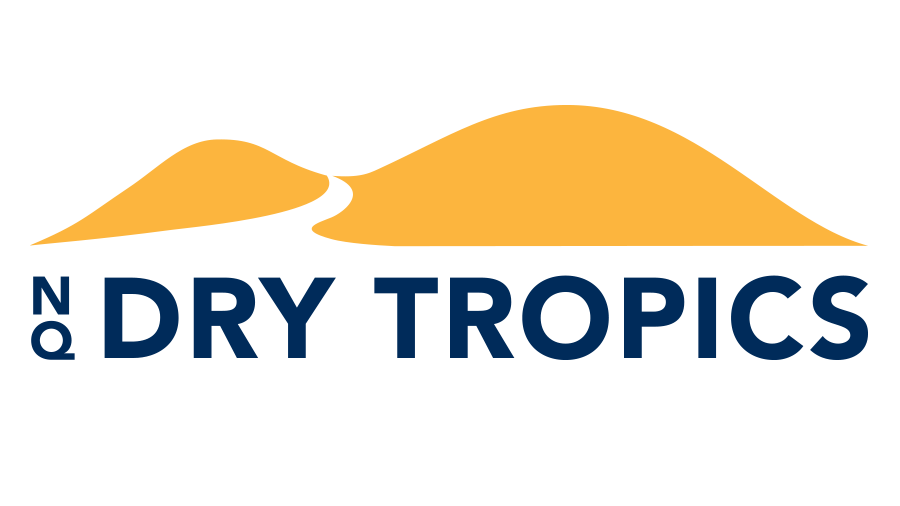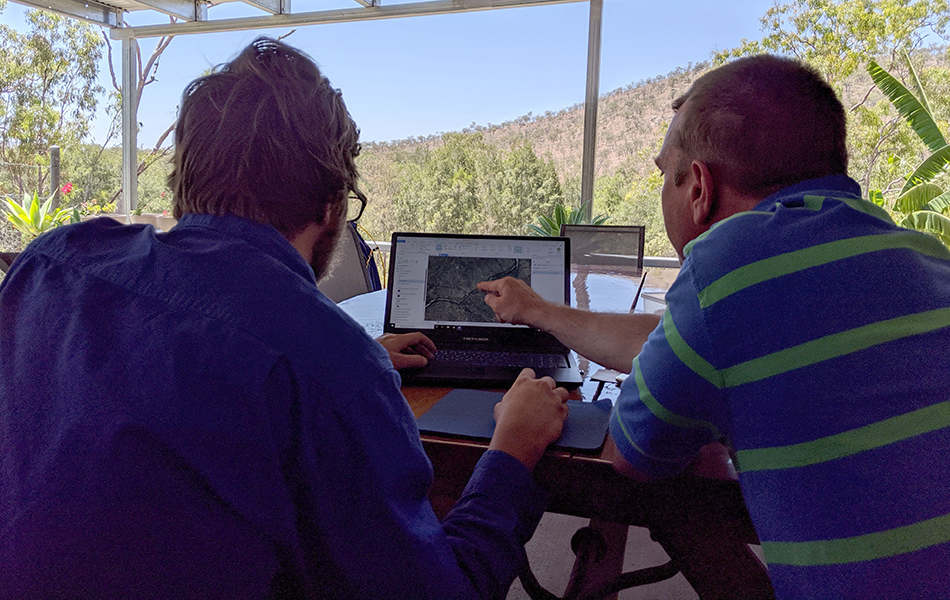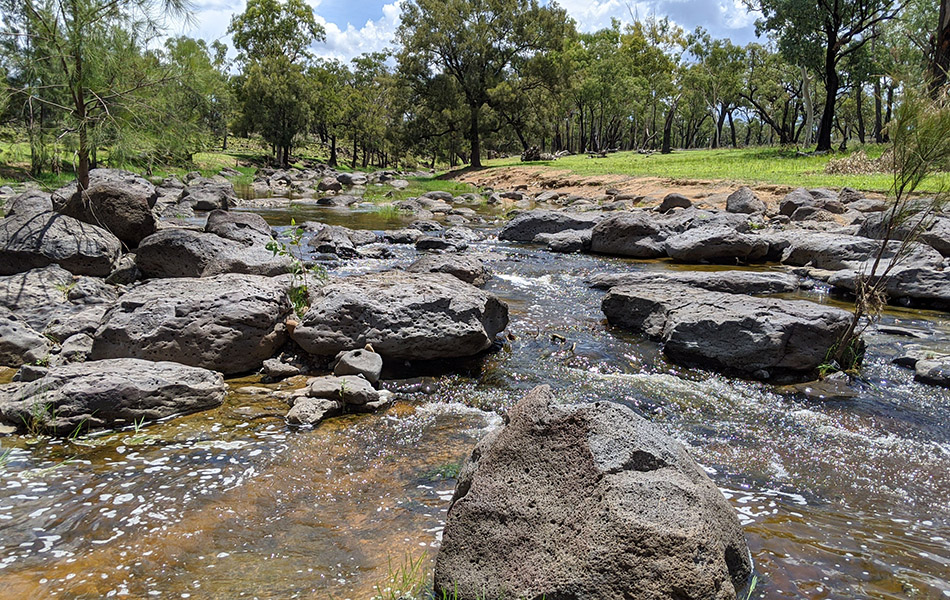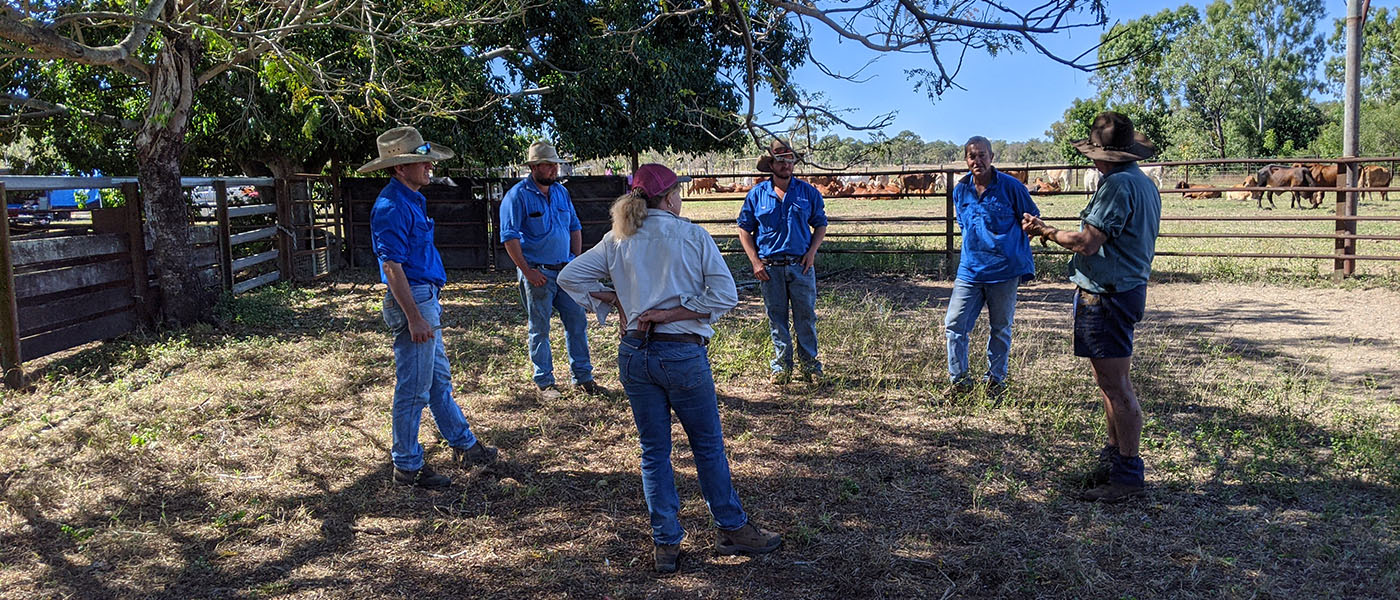NQ Dry Tropics staff members learn to assess soil texture during a workshop.
New project to help Burdekin landholders improve productivity and water quality
Graziers in the Upper and East Burdekin catchments have an opportunity to get involved in a new extension project to support the adoption of land management practices to boost productivity and profitability, build soils and improve pasture health and enhance biodiversity.
The Herding Change Through Grassroots Recovery project aims to strengthen local graziers capacity to increase pasture production and repair erosion and small-scale gullies that have an impact on water quality. On-ground activities will help increase perennial ground cover at the end of the dry season, and reduce run-off of fine sediment to the Great Barrier Reef lagoon.
The $5.1 million, three-year project is funded by the partnership between the Australian Government’s Reef Trust and the Great Barrier Reef Foundation, and will be delivered by NQ Dry Tropics and the Dalrymple Landcare Committee. The project will prevent 49 kilotonnes of fine sediment from reaching the Great Barrier Reef.
NQ Dry Tropics Program Manager for Sustainable Agriculture Rob Hunt said a Burdekin Grazing Working Group had been formed to help guide the suite of activities and ensure the project addressed graziers’ individual situations and needs. A science panel will help prioritise “hotspot” areas.
“The project will deliver a flexible program of activities for graziers, including property planning, training, one-on-one extension, peer-to-peer programs and incentives in high-priority areas,” Mr Hunt said.
“The Working Group will also help ensure the project has complementary goals and creates efficiencies with existing water quality projects in the Burdekin region to deliver best value for money.”
“It’s important to link the project to previous education, training and planning so we can accelerate uptake of improved land management practices, and maximise water quality benefits.
The project already collaborates with the Queensland Government GRASS and Reef Assist programs, where property action planning is underway to identify C and D condition land.
Local Indigenous trainees are being trained to implement small-scale erosion remediation and priority weed control alongside graziers.
“NQ Dry Tropics and Dalrymple Landcare Committee have long standing grassroot connections with graziers in the Upper and East Burdekin regions, and this will ensure efficient delivery of the project with high participation,” Mr Hunt said.
Great Barrier Reef Foundation Managing Director Anna Marsden said the Foundation looked forward to working with NQ Dry Tropics and the Dalrymple Landcare Committee to deliver this important regional water quality program.
“A healthy reef needs clean water, which is why improving water quality from land-based run-off is so important to the health of our global icon,” Ms Marsden said.
“NQ Dry Tropics has a strong track record of working with landholders and others in the local community who are committed to making a positive difference to reef health and this program will build on some of the great initiatives underway and bring forward new on-ground activities proposed for the region.”
For more information, contact NQ Dry Tropics Grazing Team Leader Linda Anderson on 4799 3556 or by email linda.anderson@nqdrytropics.com.au.
The project provides extension support to help graziers implement property planning.
Cystal clear water in waterways is an indicator that erosion is not an issue.
Education delivered in the classroom and in the field is esential for graziers to better manage their herd, their pasture and their land.



